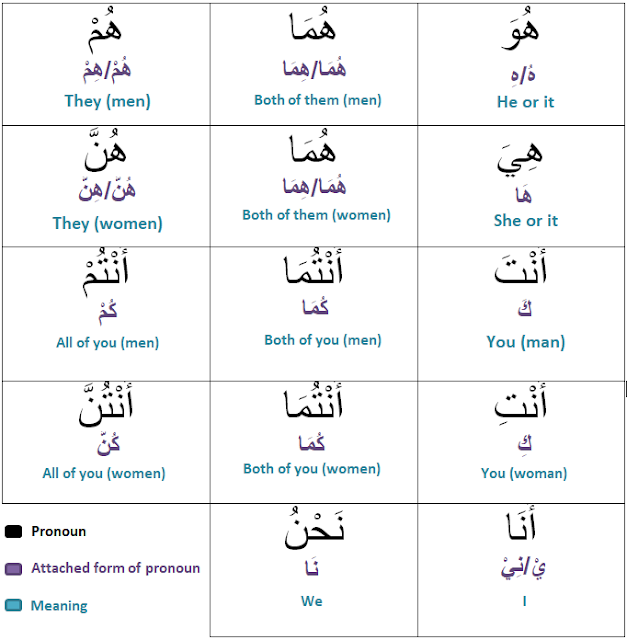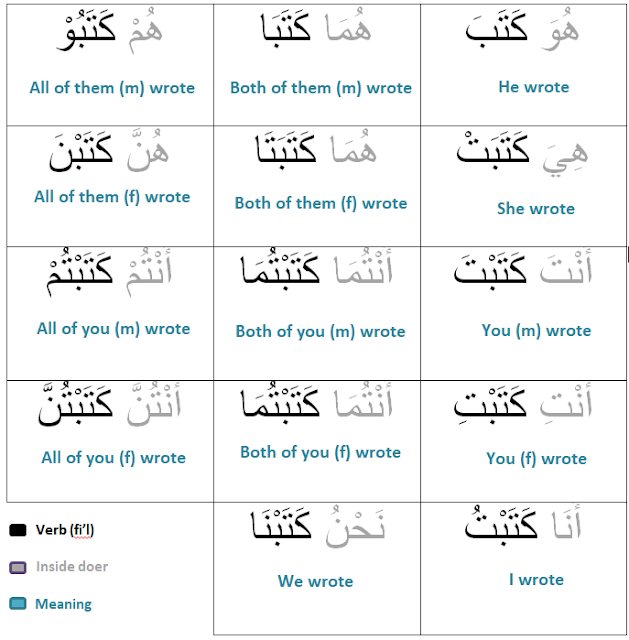Hadhiya (Blog post 22 (ii))
Since we are talking about
Musa (AS), might as well share a bit from this epic story full of incredible
lessons. As we all know Musa (AS) went up the mountain named Tur and spoke with
Allah while he was in the valley of Tuwa which was on top of that mountain. So
a beautiful conversation takes place between Allah and Musa (AS) and this is
captured in detail in Surah Ta Ha. Of course Allah speaks with Musa (AS) from
the unseen. What I want to share in this post is just one part of what happened
on the mountain. Allah swt asks Musa (AS) to throw his staff.
On a side note I want to add
something. The first time we heard about the staff of Musa (AS) as an ‘Asaa,
many of us (including myself) imagined Musa (AS) as this old man who needs a
stick to walk. I don’t think I could have been more wrong. The Quran describes
Musa (AS) as a strong and muscular man! (Look up Suratul Qasas). Yup! This ‘Asaa that Musa (AS) carries is
actually a long stick that strong men have in their hand as they walk back in the
day.
Anyway so Musa (AS) is
speaking with Allah. Within the conversation, Allah tells Musa (AS) to throw
his ‘Asaa. When he does, as we all know, it turns into a snake. Again, not a
small snake as most of us might imagine. From the names that the Quran gave
this snake, we know that it’s large enough that it could feed on a child. From
another name we also know that it looks scary. The name for this snake in Surah
Ta Ha is حَيَّة which means the kind of snake
that can take your life.
Now imagine, Musa (AS) is on top of this mountain in a dark
night all by himself. And all of a sudden his ‘Asaa turns into this huge snake
that is terrifying and dangerous. And it’s not even still! Surah Ta Ha would
describe it as حَيَّةٌ
تَسْعَى which means
it’s running around. What would Musa (AS) want to do? Obviously run for his
life! But Allah tells him these incredible words that absolutely blow my mind.
قَالَ خُذْهَا وَلَا تَخَفْ ۖ سَنُعِيدُهَا سِيرَتَهَا
الْأُولَىٰ
“He
said, grab it and don’t be afraid. We will return it to its former state.”
Surah Ta Ha, 21
Pay attention to the order of these words. If we were to tell
a child to do something that might be scary for him, we first tell him not to
be afraid and then do the task. But look at what Allah told Musa (AS). He swt
told him to grab first and not be afraid. This means that our obedience to
Allah must precede even our own emotions. We might know the fear or the hurt or
the sadness that something we have to give up or do for the sake of Allah might
cause. But we must learn to obey Him despite that fear, hurt or sadness. And
Wallaahi when we do, and we show perseverance in obeying Him even with those
feelings, Allah gives us the calmness of heart that we never thought we could
have. Just like how calm Musa (AS) would have felt, when he obeyed and grabbed
the snake despite the fear, and the snake turned back to his ‘Asaa as Allah
promised. Subhaanallah!
May Allah make us of those who obey Him in all situations, no
matter how hard it would seem. Ameen!
*Notes
on the story night named “A night to remember” By Ustadh Nouman.
***************************************************************
މޫސާ (ޢ.ސ) ގެ ވާހަކަ ދެކެވިފައިވުމުން އެކަލޭގެފާނުގެ
އަޖާއިބުވާހާ ރީތި އަދި ޢިބްރަތްތެރި ވާހަކައިގެ ތަންކޮޅަކަށް ބަލާލަމާ ހިނގާށެވެ.
އަހަރުމެން އެންމެންނަށް އެނގޭނެ ފަދައިން ޠޫރު ނަމަކަށް ކިޔާ ފަރުބަދައެއްގެ
މައްޗަށް މޫސާ (ޢ.ސ) ވަޑައިގަތުމުން ﷲ ވަނީ ޣައިބުގައިވެ ވޮޑިގެން މޫސާ (ޢ.ސ)
އާ ވާހަކަ ދައްކަވާފައެވެ. އެކަލޭގެފާނު އެ ފަރުބަދައިގެ
މަތީގައިވި ޠުވާ ނަމަކަށް ކިޔާ ވާދީއެއްގައި ވަނިކޮށެވެ. މިތާނގައި މޫސާ (ޢ.ސ)
އާއި ﷲ އާއި ދެމެދު ދެކެވިގެންދާ ރީތި ވާހަކަކޮޅު ތަފްޞީލުކޮށް ސޫރަތް ޠާހާ
ގައިވާނެއެވެ. މި ޕޯސްޓުގައި އަޅުގަނޑު ޙިއްސާކުރަން ބޭނުންވަނީ އެ ފަރުބަދައިގެ
މަތީގައިވީ ކަންތައްތަކުގެ ތެރެއިން އެންމެ ކަމެކެވެ. މޫސާ (ޢ.ސ) ގެ ޢަޞާކޮޅު
އެއްލެވުމަށް ﷲ ސުބްޙާނަހޫ ވަތަޢާލާ އެންގެވި ވަގުތެވެ.
މިވާހަކަ ކިޔައިދިނުމުގެ ކުރިން ކުޑަ އެއްޗެއް ކިޔައިދޭން
ބޭނުންވެއެވެ. މޫސާ (ޢ.ސ) ގެ ޢަޞާކޮޅުގެ ވާހަކަ އަހަރުމެންނަށް އިވުނު ފުރަތަމަ
ފަހަރު އެކަލޭގެފާނަކީ ދަނޑިކޮޅަކާއި ނުލާ ނުވެސް ހިނގޭ މުސްކުޅި ފިރިހެނެއްކަމަށް
އަހަރުމެންގެ ތެރެއިން ގިނަ ބަޔަކަށް ހީވެފައި އޮވެދާނެއެވެ. އެހެނަސް އެއީ
ޙަޤީޤަތާއި ހާދަ ދުރު ހީއެކެވެ. ޤުރުއާނުގައި މޫސާ (ޢ.ސ) ސިފަކުރެވިފައިވަނީ
ބާރުގަދަ ފިރިހެނެއްގެ ގޮތުގައެވެ. (ސޫރަތުލް ޤަޞަޞް ބައްލަވާ). މޫސާ (ޢ.ސ) ގެ
ޢަޞާކޮޅަކީ އެ ޒަމާނުގައި ބާރުގަދަ ފިރިހެނުން ޢާއްމުގޮތެއްގައި ހިނގައި އުޅޭއިރު
ގެންގުޅޭ ޒާތުގެ ދިގު ދަނޑިއެކެވެ.
ދެން ވާހަކައަށް ބަލާލަމާ ހިނގާށެވެ. މޫސާ (ޢ.ސ) ހުންނެވީ
ﷲ ސުބްޙާނަހޫ ވަތަޢާލާއާއި ވާހަކަ ދައްކަވާށެވެ. އެ ވާހަކައިގެ ތެރެއިން ﷲ މޫސާ
(ޢ.ސ) އަރިހުގައި އެ ޢަޞާކޮޅު އެއްލަވާލުމަށް ވަޙީކުރައްވައެވެ. މޫސާ (ޢ.ސ)
ޢަޞާކޮޅު އެއްލަވާލައްވައެވެ. ހަމަ އެއާއެކު އަހަރުމެންނަށް އެނގޭ ފަދައިން އޭތި
ހަރުފައަކަށް ބަދަލުވެގެންދެއެވެ. އަނެއްކާވެސް މިއީ އަހަރުމެން ޚިޔާލުކުރާ ކަހަލަ
ކުޑަކުޑަ ހަރުފައެއް ނޫނެވެ. ޤުރުއާނުގެ އެހެން ތަނެއްގައި މި ހަރުފައަށް
ދެވިފައިވި ނަމުން މިއީ ކުޑަކުއްޖަކު ވެސް ކާލެވޭނެހާ ބޮޑު ހަރުފައެއްކަން އެނގެއެވެ.
އެހެން ސޫރަތެއްގައި ދެވިފައިވި ނަމަކުން މިއީ ބަލާލަން ވެސް ބިރުވެރި
ހަރުފައެއްކަން އެނގެއެވެ. ޠާހާ ސޫރަތުގައި މި ހަރުފައަށް ދެވިފައިވި ނަމަކީ حَيَّة އެވެ. މީގެ މާނައަކީ ތިބާގެ ޙަޔާތަށް ނިމުމެއް ގެނެސްދާނެ ފަދަ ހަރުފައެކެވެ.
ދެން ޚިޔާލަށް ގެންނާށެވެ. މޫސާ (ޢ.ސ) މިވަނީ އަނދިރި
ރެއެއްގައި ފަރުބަދައެއްގެ މަތީގައި އެކަނިމާ އެކަންޏެވެ. ކުއްލިއަކަށް
އެކަލޭގެފާނުގެ ޢަޞާކޮޅު މިވަނީ ބިރުވެރި އަދި ނާމާން ހަރުފައަކަށް
ބަދަލުވެފައެވެ. އަދި އެ ހަރުފަ މަޑުން އޮތީކީއެއްވެސް ނޫނެވެ. ޠާހާ ސޫރަތުގައި އެ
ހަރުފަ ސިފަކުރެވިފައިވަނީ حَيَّةٌ تَسْعَى ގެ ގޮތުގައެވެ. މީގެ މާނައަކީ އެ ހަރުފަ އޮތީ ދުވެދުވެ ކަމެވެ. މި ޙާލަތުގައި
މޫސާ (ޢ.ސ) ކަން ކުރައްވަން ބޭނުންވެވަޑައިގަންނަވާނީ ކިހިނެއް ހެއްޔެވެ؟ އެފަދަ
ޙާލަތެއްގައިވި ކޮންމެ އިންސާނެއް ފަދައިންވެސް އަމިއްލަ ނަފްސު ރައްކާތެރިކުރުމަށްޓަކައި
ދުވެވަޑައިގަންނަވަން އެދިވަޑައިގަންވާނެކަން ޔަޤީނެވެ. އެހެނަސް އެވަގުތު ﷲ
ސުބުޙާނަހޫ ވަތަޢާލާ މޫސާ (ޢ.ސ) ގާތު ވަޙީކުރައްވާ ވާހަކައިން އަޅުގަނޑު
އަޖާއިބުވެ އަންތަރީސްވެއެވެ.
قَالَ خُذْهَا وَلَا تَخَفْ ۖ سَنُعِيدُهَا سِيرَتَهَا
الْأُولَىٰ
"އެކަލާނގެ ވިދާޅުވިއެވެ. އެ ޢާޞާކޮޅުގައި
ހިއްޕަވާށެވެ! އަދި ބިރުފުޅުނުގަންނަވާށެވެ! ތިމަންރަސްކަލާނގެ އޭތި ކުރިން އޮތް
ގޮތަށް އިޢާދަކުރައްވާ ހުށީމެވެ." ސޫރަތް ޠާހާ، 21
މި އާޔަތުގައި ބަސްތައް ބުނެވިފައިވި ތަރުތީބަށް
ސަމާލުކަން ދޭށެވެ. އަހަރުމެންގެ ތެރެއިން މީހަކު ކުއްޖެއް ކައިރި އެ ކުއްޖާ
ބިރުގަންނާނެ ފަދަ ކަމެއް ކުރަން ބުނާއިރު ފުރަތަމަ ބުނާނީ ބިރުނުގަތުމަށެވެ.
އެކަން ކުރުމަށް އަންގާނީ ދެވަނައަށެވެ. އެހެނަސް އެ ބިރުވެރި ޙާލަތުގައި ﷲ
ސުބްޙާނަހޫ ވަތަޢާލާ މޫސާ (ޢ.ސ) ގާތު ވަޙީކުރެއްވި ވާހަކައަށް ބަލާށެވެ. އެންމެ
ފުރަތަމަ އެކަލާނގެ ވަޙީކުރެއްވި އެ ޢަޞާކޮޅުގައި ހިއްޕެވުމަށެވެ. ބިރުނުގަތުމަށް
އެންގެވީ ފަހުންނެވެ. މީގެ މާނައަކީ ﷲ އަށް ކިޔަމަންތެރިވުން އަހަރުމެންގެ
އިޙްސާސްތަކުގެ މައްޗަށް އަންނަން ޖެހޭކަމެވެ. ﷲ އަށްޓަކައި ދޫކުރަންޖެހޭ ކަމެއް
ނޫނީ އެކަލާނގެއަށް ކިޔަމަންވުމުގެ ގޮތުން ކުރަންޖެހޭ ކަމެއް ކުރުމުން ކުރިމަތިލާންޖެހޭނެ
ބިރުވެރިކަމެއް ނޫނީ ހިތާމައެއް ތަދެއް އަހަރުމެންނަށް އަންދާޒާ ކުރެވިދާނެއެވެ.
އެހެނަސް އެ ބިރުވެރިކަމާއި އެ ހިތާމައާއި އެ ތަދާއެކީ ގައިވެސް އެކަލާނގެއަށް
ބޯލަނބަން އަހަރުމެން ދަސްކުރަންޖެހެއެވެ. އަހަރުމެން އެގޮތަށް ކަންތައް ކޮށް އެ
ދަތި އިޙްސާސްތަކާއެކީ ގައިވެސް އެކަލާނގެ ކިޔަމަންވުމުގައި ދެމި ތިބެއްޖެނަމަ
އެކަލާނގެ އަހަރުމެންގެ ހިތަށް ދުވަހަކުވެސް ލިބިދާނެހެން ހީނުވާފަދަ ހަމަޖެހުމެއް
ގެނެސްދެއްވާނެއެވެ. ބިރުވެރި ކަމެއްގެ ތެރޭ ހުރެވެސް ﷲ އަށް ކިޔަމަންވުމުގެ
ގޮތުން އެ ހަރުފައިގައި ހިފުމުން ﷲ ގެ ވަޢުދުފުޅާއި އެއްގޮތަށް އެ ހަރުފަ
އަނެއްކާވެސް ޢަޞާއަށް ބަދަލުވީ ވަގުތު މޫސާ (ޢ.ސ) އަށް އިޙްސާސްކުރެވުނު ފަދަ
ހަމަޖެހުމެކެވެ. ސުބްޙާނަ ﷲ!
މާތް
ﷲ އަޅަމެންނަކީ ކިތަންމެ ދަތިވިޔަސް ކޮންމެ ޙާލަތެއްގައި ވެސް އެކަލާނގެއަށް
ކިޔަމަންވާ އަޅުން ކަމުގައި ލައްވާށި! އާމީން!


Comments
Post a Comment